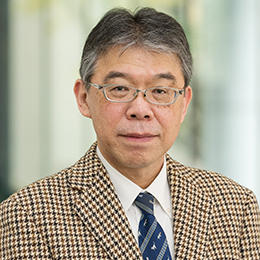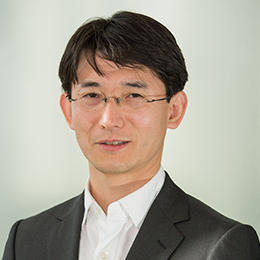- Home
-
Faculty
Faculty
Name/Position
Department/Specialty/Research Interest
-
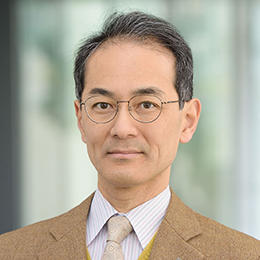 NAKAJIMA, KeiichiProfessordrk1nakajima@keio.jp
NAKAJIMA, KeiichiProfessordrk1nakajima@keio.jpJapanese History
Japanese History in the Middle AgesMy research, based on documents and archaeological sources, focuses on medieval economy that include money, usury, trade, and manufacturing techniques, among others.
-
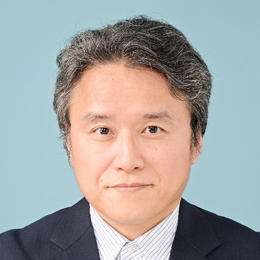 NAGASAKI, KiyonoriProfessor
NAGASAKI, KiyonoriProfessorLibrary and Information Science
Digital Humanities, Buddhist StudiesI am engaged in digital humanities. I am interested in making the humanities more accessible for the digital age and in opening up new horizons for academic research. I have been focusing on the construction of digital environments for textual scholarship, but recently I have been expanding my research to include video and 3D within an international framework. Although Buddhist studies is my main focus as a case study, I've been collaborating with research institutions and researchers in various fields in the world in order to address all aspects of the humanities.
-
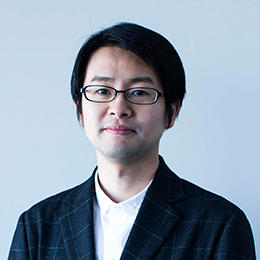 NISHIO, TakahiroAssociate Professornishio@keio.jp
NISHIO, TakahiroAssociate Professornishio@keio.jpGerman Literature
Modern German LiteratureMy research project is to explore the theme of the "public sphere" led by e. g. the German philosopher Jürgen Habermas from the standpoint of the literary studies. In my doctoral dissertation I focused on the cultural and political situations around 1800 in German-speaking countries, centered on Prussian writer, Heinrich von Kleist, who lived in the social conflicts after the French Revolution. Recently, while shifting gradually its focus to the middle of the “long 19th century”, I address the public roles that a wide range of communication spaces derived from literature and journalism can play in the society from a historical perspective. Currently, the theme I am working on with interest is the problematics of “lying and fiction”.
-
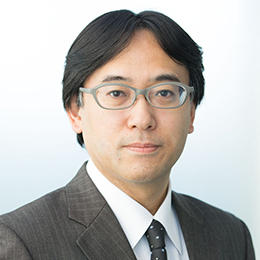 NISHIKAWA, HisaoProfessornishikawa.z3@keio.jp
NISHIKAWA, HisaoProfessornishikawa.z3@keio.jpAesthetics and Science of Arts
Musicology, History of Western MusicI specialize in music from the Classical period, with a particular emphasis on W.A. Mozart. I focus on issues of Mozart's compositional process and the performance practice and contemporary reception of his works by studying the original manuscripts. My research interests also include court orchestras, theaters, public concerts, and music publishing in Vienna and Salzburg in the 18th century.
-
 NISHINO, AyakoProfessorayani@keio.jp
NISHINO, AyakoProfessorayani@keio.jpFrench Literature
French Literature (20th) Cultural Exchange of Japan and FranceI study Paul Claudel and the influence of traditional Japanese theater (Noh, Kabuki, etc.) on his synthesis of arts, union of poetry, music and dance, and his opening to spirituality. I am interested in the history of theatrical exchange between Japan and France around Noh.
-
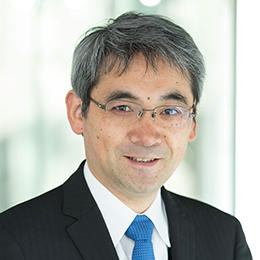 NONOSE, KojiProfessorkononose@flet.keio.ac.jp
NONOSE, KojiProfessorkononose@flet.keio.ac.jpWestern History
History of the Swiss Reformation, History of Rural Society in SwitzerlandMy special field of my research is the history of the Swiss Reformation, especially the history of rural society in Switzerland. To understand close interrelations between the Reformation and the German Peasants' War properly, I have analyzed the influence of the theological doctrines of the reformers upon European rural society during the first century of the Reformation in detail. I concentrated heavily on both the conjunction between religion and society and the various changes in the rural lives of the Common man. As primary sources, I have used many contemporary documents, particularly grievances and articles of the village commune over lordship, serfdom, tithe and heriot in the German Peasants' War. I attempted to reveal the essence of "the laws of God" for the Common man. More recently I have started research on religion and politics in the Swiss cities during the Reformation.
-
 HASHIMOTO, RyoichiAssistant Professorryoichi.hashimoto@keio.jp
HASHIMOTO, RyoichiAssistant Professorryoichi.hashimoto@keio.jpEnglish and American Literature
Modern and Contemporary English Literature; Poetry and PoeticsMy main research interests are in nineteenth-century British poetry, and particularly the works of Alfred Tennyson. I have an interest in poetics, allusion, translation, and nonsense writing, but Iʼm particularly interested in repetition, and the specific focus of my doctoral research was the use of repetition in Tennysonʼs poetry.
-
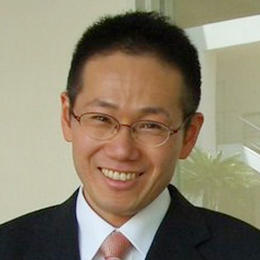 HASEGAWA, TakashiAssociate Professortakahase@flet.keio.ac.jp
HASEGAWA, TakashiAssociate Professortakahase@flet.keio.ac.jpWestern History
Roman History (Roman Economy and Society)My major field of study is economic and social history of Roman Gaul and Germania. I am particularly interested in discovering what network merchants and artisans built throughout these regions of the Empire, by analyzing archaeological and geographical source material, chiefly inscriptions related to them.
-
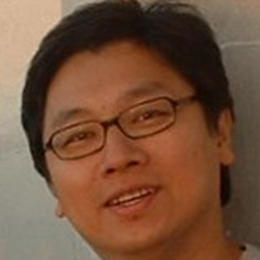 HASEBE, FumihikoProfessormanzala@keio.jp
HASEBE, FumihikoProfessormanzala@keio.jpAsian History
Middle Eastern Social History, The History of the Arabic Political CultureMy research focuses on the social history of Egypt in the Mamluk and Ottoman eras. I am particularly interested in the political culture and social relationship of pre-modern Nile Delta cities. I am currently working on urban notables of al-Mahalla al-Kubra based on the analysis of Ottoman court registers.
-
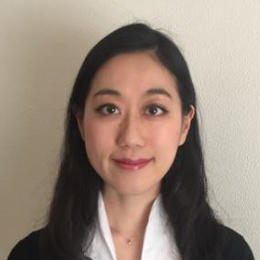 HARADA, AkikoAssistant Professorsperanza03@keio.jp
HARADA, AkikoAssistant Professorsperanza03@keio.jpForeign Languages
Early Modern Italian History, Urban Roman History, History of the PopesMy research focuses on the History of Rome in the early modern period. I pay attention to the figure of the Pope, who was not only the spiritual head of the Catholic world, but also a secular monarch who actually ruled over a vast territory in central Italy. I examine how the city of Rome was governed and the relationship between the popes and the city. While clarifying the particularities of Rome, I also aim to discover the general characteristics of the "state" of early modern period.
-
English and American Literature
English Literature (Early Modern and Modern), Comparative Literature, Cultural History of Book and Publication, English Literary EducationMy major research subject is early modern and modern English literature; in particular, I am interested in English novels from the eighteenth century to the twenty-first century. My researches also include some related areas: comparative studies in Western literary movements, translation and adaptation of English literature in Japan, the relationship between the development of the English novel and the history of book production, and English literary education from the historical point of view.
-
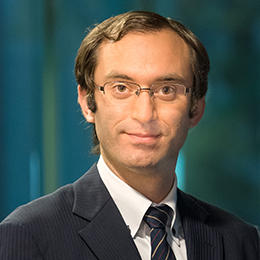 BERNARD, PeterAssociate Professor
BERNARD, PeterAssociate ProfessorEnglish and American Literature
Modern Japanese Literature, Comparative Literature, Supernatural Fiction, Gothic StudiesMy current research project considers why and how rural space came to be depicted as a haunted site of horror through the combination of ethnographic and modern literary practices in the works of such authors as Izumi Kyōka, M. R. James, and H. P. Lovecraft. I am also interested in Hinatsu Kōnosuke and the history of the Gothic as a particular kind of translation strategy in modern Japan.
-
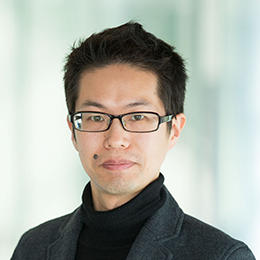 HIRAISHI, KaiProfessorkaihiraishi@keio.jp
HIRAISHI, KaiProfessorkaihiraishi@keio.jpHuman Sciences
Evolutionary Psychology, Deep Learning Psychology, Social PsychologyIn recent years, my research has been centered around the reliability revolution in psychology. Now, I find myself eager to revisit my intrinsic interest—exploring human behavior and psychology through the lens of evolution.
-
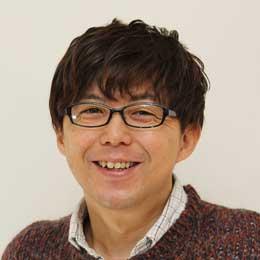 HIRAI, YasushiProfessorhiraiya@keio.jp
HIRAI, YasushiProfessorhiraiya@keio.jpPhilosophy
Philosophy of time and mind. Metaphysics of memory. Modern and contemporary philosophy with a focus on Bergson and Leibniz.While focusing on the multiscale structure in time and incorporating not only extension and tense but also aspect into philosophy of time, I hope to apply this to metaphysical problems such as consciousness, mind, freedom and memory. By reinterpreting and reformulating the ideas contained in traditional philosophical texts through the lens of contemporary analytical discussion and scientific theory, I am interested in drawing out more universal and inspiring tools of thinking from the history of philosophy.
-
German Literature
Theatre Studies/Research on German TheatreThe focus of my research is analyzing the European, German, and Japanese theatre with the methodology of Theatre Studies, which has been developed with its own discipline in the last two decades in Europe/Germany. My research in recent years has been reviewing the theatrical aspects of presence and absence, the tragedy theory, the relationship between theatre and democracy, as well as the transcultural elements between theatre and politics. The elements of theatre, such as gesture, body, playfulness, and direction, are related to the “theatricality” in our life, especially in a media society in which self-direction, face-to-face communication (as the binary opposition of media), eventuality, and the spectatorship of events take on a crucial role. This kind of theatricality, which has been discussed not only in theatre studies but also in philosophy, political science, and sociology, is also a key topic of my long-term research.
-
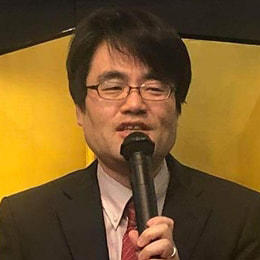 FUKUSHIMA, YukihiroAssociate Professorfukusima-y@keio.jp
FUKUSHIMA, YukihiroAssociate Professorfukusima-y@keio.jpLibrary and Information Science
Before assuming my current position at Keio University, I worked at the Kyoto Prefectural Library and Archives and served as a specially appointed associate professor at the University of Tokyo's Interfaculty Initiative in Information Studies. At the Kyoto Prefectural Library and Archives, I was in charge of the conservation of modern administrative documents as cultural assets, the release of materials from the prewar Showa era (1926–1940), the use of detailed Kyoto City maps, and the registration of the Hyakugo Archives (the archives of Toji Temple) as a UNESCO “Memory of the World” as well as their online publication under the Creative Commons Attribution license (CC BY), for which we received the Library of the Year award in 2014. At the Kyoto Prefectural Library, I was in charge of formulating a service plan, establishing a library council, examining evaluation criteria, and speeding up cross-search capabilities. I researched the construction of knowledge information infrastructure and digital archives.
-
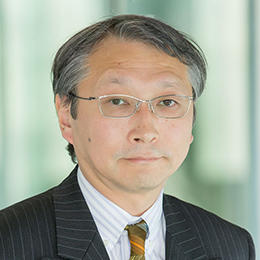 FUKUDA, WataruProfessorwafukuda@flet.keio.ac.jp
FUKUDA, WataruProfessorwafukuda@flet.keio.ac.jpAesthetics and Science of Arts
Musicology, History of Western MusicThe main subject of my research is the music of Franz Liszt, a 19th-century Romantic-era musician. I am especially interested in his musical manuscripts for the purpose of elucidating the composition process of his religious compositions, the relationship between the many versions and arrangements of his works, and the environment in which Liszt worked and created.
-
 FUJIKI, KenjiProfessorkfujiki@keio.jp
FUJIKI, KenjiProfessorkfujiki@keio.jpAsian History
History of the Ottoman Empire, Urban Social History of the Middle EastI have an interest in the issues that concern the urban lives of people in cities in the Middle East, especially during the period of the Ottoman Empire. I pay particular attention to the merchants and craftsmen who make up the majority of the urban population, even today, and research the people of commerce and industry and the unions of Ottoman-era Istanbul. In order to reveal the actual living conditions of merchants and craftsmen as well as the management of unions, I extract and analyze related cases from historical sources, namely sources called the Ottoman Court Records. Additionally, this same research interest has led me to research concerning contemporaneous entertainment, consumer culture, and charity work.
-
 FUJISAWA, KeikoProfessorfujisawa@flet.keio.ac.jp
FUJISAWA, KeikoProfessorfujisawa@flet.keio.ac.jpEducation Studies
Developmental PsychologyI am interested in what is the best home/out-home environments for each child based on their background and developmental trajectories that are different for each child. I am conducting psychological research on social and cognitive development as well as mental health in children during infancy and early adolescence.
-
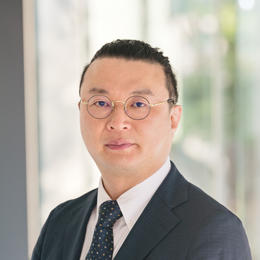 FUJINO, YoheiProfessor
FUJINO, YoheiProfessorSociology
Cultural Anthropology, East Asian Studies -
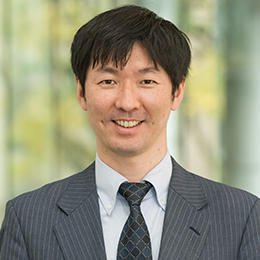 FUJIMOTO, MakotoAssociate Professorfujimoto@flet.keio.ac.jp
FUJIMOTO, MakotoAssociate Professorfujimoto@flet.keio.ac.jpJapanese History
Ancient Japanese HistoryI am researching why Buddhism in Japan, which was nationally accepted from the continent and peninsula in the mid-6th century, was subsequently accepted by ancient society and believed in by the people, in terms of Buddhist thought and the relationship between the state and society. In addition, I am also examining the formation of Buddhist collections of discourses in ancient Japan from the perspective of the reception of books and comparing them with the ideas and expressions found in Chinese Buddhist texts.
-
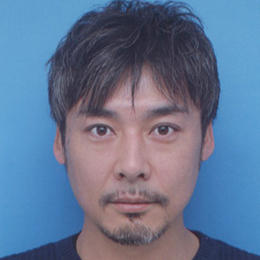 FURUKAWA, RyouheiAssociate Professorfurukawa@keio.jp
FURUKAWA, RyouheiAssociate Professorfurukawa@keio.jpNatural Sciences
Developmental Biology, ImmunobiologyMulticellular organisms have exceptionally immune systems that distinguish between "self" and "non-self" and reject "non-self" from the body. Since the existence of "nonself" cannot be established without the existence of "self", it is necessary to establish "self" in the process of individual development in order for the immune system to function normally. So, how was the mechanism to establish "self" acquired in the process of biological evolution? By pursuing this problem, I would like to add interesting knowledge from the natural sciences to the philosophical discussion of "What is self?"
-
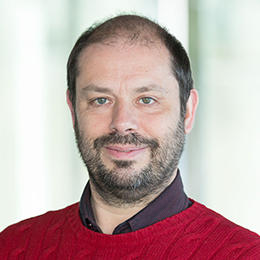 BRANCOURT, VincentVisiting Professorvbrancourt@hotmail.com
BRANCOURT, VincentVisiting Professorvbrancourt@hotmail.comFrench Literature
French LiteratureRécemment, parmi les question qui m'intéressent, je me suis notamment attaché à m'interroger sur la manière dont dans des œuvres de dramaturges modernes ou contemporains comme Giraudoux ou Koltès l'espace scénique se mue en espace imaginaire et la façon dont ces auteurs intègrent dans leur dramaturgie une réflexion sur le statut de cet《espace imaginaire》, en particulier autour de la question de la fascination.
***
Recently, my attention has been drawn into the work of modern and contemporary playwriters such as Giraudoux or Koltès, in particular reflecting upon how the stage space morphs into an imaginary space as well as how these authors include in their dramaturgic compositions, a reflection on the status of this “imaginary space”, notably focusing on the fascination aspect. -
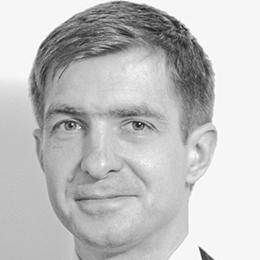 BECKER AndreasVisiting Associate Professorbecker.andreas@posteo.de
BECKER AndreasVisiting Associate Professorbecker.andreas@posteo.deGerman Literature
Film, MediaMy actual research focus is on the aesthetic interdependence of Japanese and Western film, especially the work of Yasujirô Ozu. Other research interests include the visualisation of time in film (slow motion and time lapse). My theoretical background is the phenomenology of Edmund Husserl, the works of Walter Benjamin, and comparative aesthetics.
-
 HOSONO, KaoriAssistant professorkaorihosono@keio.jp
HOSONO, KaoriAssistant professorkaorihosono@keio.jpEnglish and American Literature
Nineteenth-Century American Literature and CultureI have mainly studied Mark Twain (1835–1910), one of the greatest American realist writers. My current research project focuses on sensationalism and expansionism in the works of Antebellum writers, especially George Lippard (1822–1854).

